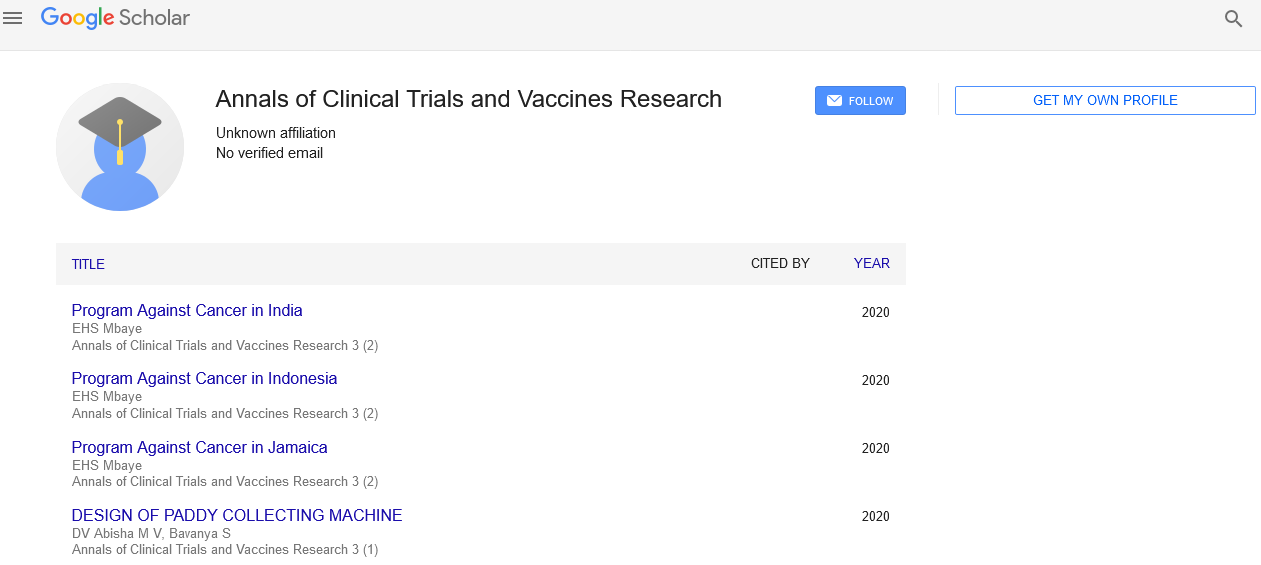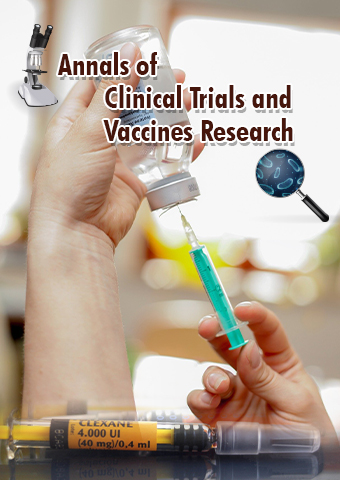Perspective - Annals of Clinical Trials and Vaccines Research (2025) Volume 15, Issue 1
Revolutionizing Tomorrow: The Unprecedented Journey of Biotechnology
Ercan Cacan*
Department of Biotechnology, Aksaray University, Aksaray, Turkey
- *Corresponding Author:
- Ercan Cacan
Department of Biotechnology, Aksaray University, Aksaray, Turkey
E-mail: Ecacan@gop.edu.tr
Received: 17-Jan-2024, Manuscript No. ACTVR-24-125212; Editor assigned: 19-Jan-2024, PreQC No. ACTVR-24-125212 (PQ); Reviewed: 02-Feb-2024, QC No. ACTVR-24-125212; Revised: 14-Mar-2025, Manuscript No. ACTVR-24-125212 (R); Published: March 21, 2025, DOI: 10.37532/ ACTVR.2025.15(1).306-307
Introduction
In the intricate web of scientific advancements, biotechnology emerges as a prominent thread, weaving its way through diverse fields, from medicine to agriculture, environmental conservation to industrial processes. Defined as the use of living systems, organisms, or derivatives to develop or create new products, biotechnology has become an indispensable force driving innovation and transforming the landscape of human civilization.
Description
Biotechnology in medicine
One of the most remarkable applications of biotechnology lies in the field of medicine, where it has significantly contributed to the diagnosis, treatment, and prevention of various diseases. The advent of recombinant DNA technology has allowed scientists to manipulate genetic material, paving the way for the production of therapeutic proteins, vaccines, and genetically modified organisms for medical research.
Gene therapy, a revolutionary branch of biotechnology, holds immense promise in treating genetic disorders by directly addressing the root cause-the faulty genes themselves. With CRISPR-Cas9 technology, precise gene editing has become a reality, opening avenues for correcting genetic mutations and preventing the inheritance of hereditary diseases.
Biotechnology and agriculture
As the global population continues to burgeon, the agricultural sector faces the daunting task of ensuring food security. Biotechnology plays a pivotal role in this challenge, offering solutions that enhance crop yields, resist pests, and adapt to changing environmental conditions.
Genetically Modified (GM) crops, engineered for improved nutritional content and resistance to diseases, have become instrumental in addressing malnutrition and ensuring sustainable agriculture. The development of drought-resistant crops also holds promise in regions grappling with water scarcity, offering a lifeline to farmers facing the impacts of climate change.
Environmental applications
Biotechnology’s impact extends beyond human health and agriculture, reaching into environmental conservation and remediation. Microorganisms equipped with the ability to break down pollutants and toxins are being employed to clean up contaminated soil and water, heralding a new era of eco-friendly solutions.
Bioremediation, a process that utilizes living organisms to detoxify and restore polluted environments, showcases the potential of biotechnology in mitigating the impacts of industrial activities. By harnessing the natural abilities of microorganisms, scientists are devising innovative strategies to combat environmental degradation and promote sustainability.
Industrial biotechnology
In the industrial sector, biotechnology is catalyzing the transition towards greener and more sustainable practices. Traditional manufacturing processes often involve harsh chemicals and generate substantial waste. However, biotechnological methods, such as fermentation and enzyme engineering, offer eco-friendly alternatives with reduced environmental footprints.
Enzymes, the molecular workhorses of biotechnology, are increasingly being utilized in various industries, from textiles to biofuels. Their specificity and efficiency make them invaluable in processes that require precision and sustainability. As biotechnological advancements continue, industries are poised to embrace greener alternatives that align with the principles of a circular economy.
Ethical considerations
While the potential of biotechnology is vast and transformative, it raises ethical considerations that warrant careful scrutiny. The manipulation of genetic material, the creation of genetically modified organisms, and the potential for unintended consequences necessitate a thoughtful and ethical approach to biotechnological advancements.
Ensuring transparency, informed consent, and responsible practices are essential in navigating the ethical landscape of biotechnology. Striking a balance between innovation and ethical considerations is crucial to harnessing the full potential of biotechnology while safeguarding the well-being of individuals and ecosystems.
The future of biotechnology
As we stand at the crossroads of the present and the future, biotechnology emerges as a beacon of hope and progress. The ongoing advancements in gene editing, synthetic biology, and nanotechnology promise to unlock new frontiers in medicine, agriculture, and industry. The convergence of artificial intelligence with biotechnology is another frontier that holds immense potential. Machine learning algorithms analyze vast datasets, accelerating the pace of drug discovery, optimizing agricultural practices, and streamlining industrial processes.
Conclusion
In conclusion, biotechnology is a transformative force that has the power to reshape the world as we know it. Its applications span across various domains, offering solutions to complex challenges and ushering in an era of unprecedented possibilities. However, with great power comes great responsibility, and the ethical considerations surrounding biotechnological advancements must guide our journey into this promising frontier. As we navigate the intricate tapestry of biotechnology, we must tread carefully, ensuring that our pursuit of progress is tempered with wisdom, compassion, and a commitment to the well-being of our planet and its inhabitants.

